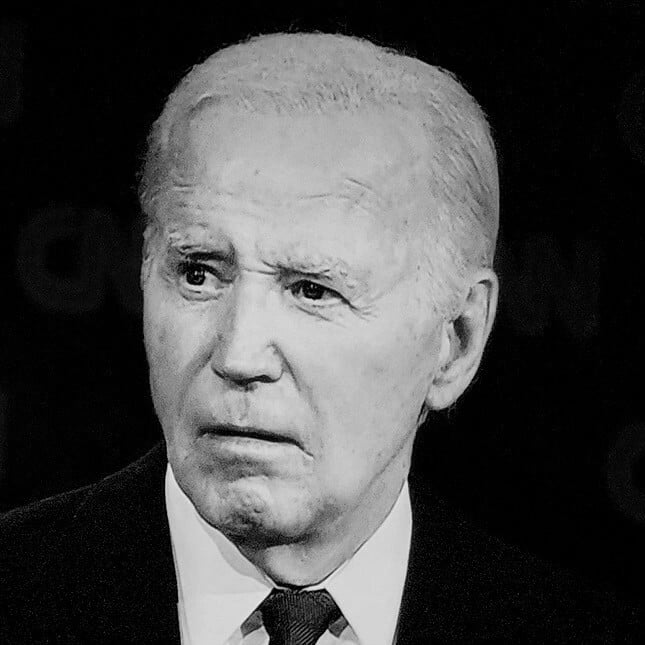This is misleading. They made each of the different denominations of Christianity a separate group, but atheists, agnostics, and people who believe in a higher power but don’t belong to any specific religion are all lumped together.
Exactly. If you believe in a monotheistic god and venerate Jesus but say you aren’t affiliated with any Christian church, you are a ‘none.’
Mate…
Go tell a Catholic and a Protestant that they’ll the same religion and see what happens.
They tend to have a pretty big history.
And where do you want to draw the line for “same”?
Islam, Judaism, and Christianity all worship the same God.
The one that Abraham heard in his head that told him to kill his brother, then told him to kill his son but at the last second changed their mind.
They have minor disagreements on prophets and what food is allowed, but they’re worshipping the same god a (likely schizophrenic) guy over 2,000 years ago said he could hear in his head.
Agnostics and atheists are as different as Catholics and Protestants are. Which is to say for the purposes of good statistics, not very.
Adding people who believe in a God but not necessarily any particular God in the same group as people who believe in no God at all would be akin to saying Hindus and Christians belong in the same group.
This is bad statistics. It’s value hacking to get a desired result.
Adding people who believe in a God but not necessarily any particular God in
Do you think thats what agnostic means?
Because that’s not what it means…
You misunderstood what they said.
They were commenting on gnostics being combined with atheists and agnostics. Not agnostics.
The first comment stated that atheist, agnostic, and unspecified gnostics were lumped together. They are saying that unspecified gnostics are radically different from the other two.
You misunderstood what they said.
No, the first person misunderstood what the article said…
A new study from Pew Research finds that the religiously unaffiliated – a group comprised of atheists, agnostic and those who say their religion is “nothing in particular” – is now the largest cohort in the U.S. They’re more prevalent among American adults than Catholics (23%) or evangelical Protestants (24%).
I just didn’t explain every way they were wrong in my reply.
And when someone replies to me going off what that comment said and not what the article said, I had no idea what they were talking about.
“Nothing in particular” doesn’t mean they believe in a higher power, it could just be “don’t be a dick to others” without some higher power telling them that.
You thought they misunderstood what agnosticism was. You were wrong. It’s okay.
I thought that’s what they were talking about about.
Instead they were talking about something not in the article that the first commenter made up.
It’s fine, but that’s what it is.
If I asked a Protestant and a Catholic in my country they’d certainly say they’re part of the same religion.
Two toddlers who hate each other getting mad when they’re put in the same group does not mean they’re not the same.
In my personal experience, this really depends on the context. Most of the time what you say is true. However they are as opportunistic as anything else. If you are discussing things that point to the division of sects as a weakness, or how demographics don’t stack up to other because of the division of sects (like in this article), suddenly they are perfectly fine with every other sect being the same religion.
Ask a very devout US Catholic if they believe in evolution or the Big Bang. Their views are aligned with the Protestant-derived churches around them.
It’s misleading for certain purposes, but no purpose is implied by the headline. For some purposes it would be equally as misleading to categorise Mormons with Catholics. The denominations don’t collectively act as a bloc on many issues/topics
This is misleading.
What you point out is mentioned in the article, so how is it misleading?
ill believe it when they vote that way. how many atheist politicians? if its more than 1 ill be shocked
I believe 8 states still have “unenforceable” laws preventing atheists from holding office. Kinda wild.
I’m atheist and the article says we’re more likely to care about politics. Checks out. I strongly encourage voting, even though Dems are a letdown. But ranked choice voting would be a step in the right direction.
What politicians say and what they actually believe is often likely different. For example, how many believe Trump is Christian?
yes this is a good point… kinda. valid, and disappointing as it reinforces the fact they still have to fake it to get elected
It’s not none but it’s not something you go and tell everyone, it’s not good politically.
To get to these numbers, people who identify as “nothing in particular” are lumped in with atheists and agnostics. Without that, this group is pretty small. However, they may believe in some kind of god. There’s accusations of hypocrisy that atheists are happy to include this group to pump the numbers, but are less welcoming when they learn their actual beliefs.
Still, this atheist does think this represents an important step in removing religion from its dominant position in society.
I know one! She’s on a local city council.
Only 3,300 surveyed? Come on, Pew, get those numbers up.
Still a good sign.
3,300 is actually a relatively large sample size.
For denominational preferences across the US? Respectfully disagree.
Statistical analysis 101. You don’t really get to have you own opinion.
Okay I’ll go off facts instead: Pew’s Religious Landscape Study in 2014/2017 says they surveyed 35,000 Americans.
https://www.pewresearch.org/religion/religious-landscape-study/
It also depends on the context and the purpose of the survey. With a sample size of n=1000, you can get a general sense of the population’s opinions or characteristics if the sample is representative of the population and the survey is well-designed. However, larger sample sizes may be needed if you want to make inferences with more precision or if your population is very diverse, or if you want to drill into sub-segments within the population that may be niche and hard to reach (e.g., minority ethnic groups).
In that article. I am saying religious groups have niche minorities similar to minority ethnic groups.
The survey isn’t about the “niche” subset of the population that is religious. It is about the composition of the entire population. Not a subset of the population so that isn’t relevant.
Edit: to be clear, I understand that there may be some niche subsets within this survey that may not be represented because there are only 20 people in the US that believe in that weird religion, but again, that has nothing to do with the larger, non-niche subsets which are absolutely represented with enough accuracy to draw statically significant conclusions with a sample size of 1000
What’s the fact here? That this study had more than ten times the sample size?
That doesn’t make 3,300 an insufficient sample size. It just means this study had a larger sample size.
And yeah, that study may have different numbers, but it is based on decade-old polling, so of course it does.
I said for religious selection 3,300 is too small a sample size. Their previous studies show they have much larger sample sizes for religious diversity. There’s over 4k religions in the world and while those aren’t all represented in the US I think the sample size should exceed the possible variety.
….that’s a very large sample size and way more than enough for accuracy.










